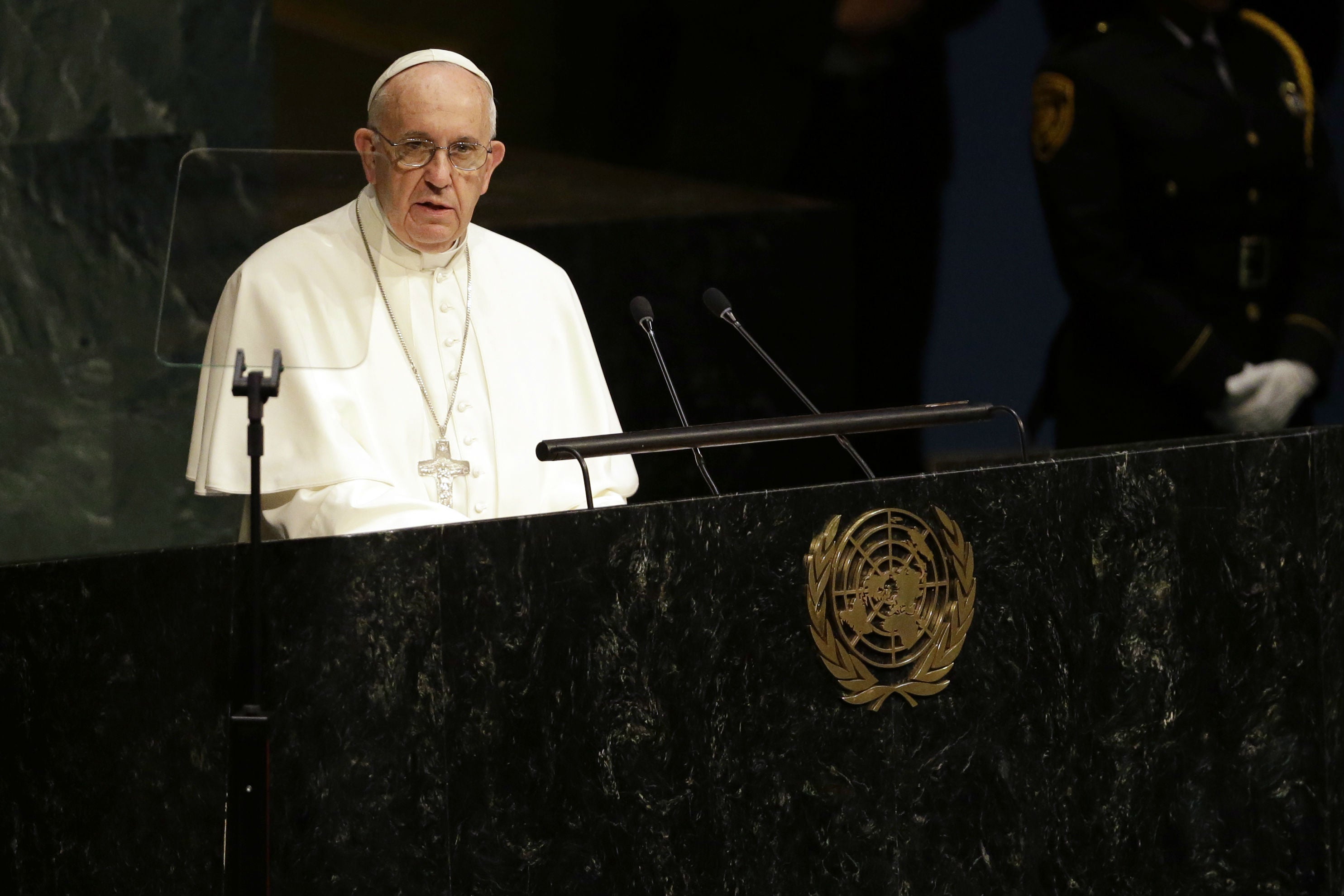If the UN thinks it can end poverty, hunger and gender discrimination all in one go - it has lost its mind

The main attraction at this year’s UN General Assembly was always going to be Putin, and the main topic for debate Syria and the refugee crisis. But the warm-up for yesterday’s great confab of nations – the three-day development conference that took place last week – deserves to be more than a footnote. It comes just once every 15 years, and revealed plenty about the UN’s long-term approach to fixing global problems – and how exactly it can go wrong.
The Pope fronted the affair, alongside Richard Curtis. Fittingly, its ambitions were both biblical in scope and syrupy in presentation. According to the agenda document, the new targets, which replaced the Millennium Development Goals (MDG), will “free the human race from the tyranny of poverty” and “heal and secure our planet for present and future generations”. Quite the task for the God of Genesis, chapter one, let alone a gaggle of world leaders in Manhattan.
To listen to some UN bureaucrats, you would think that progress in combating world poverty comes largely down to the MDGs. In reality their effect was minimal at best. One UN statistician found no significant acceleration on any of the MDG’s goals after they were introduced in 2000, except debt relief. Many targets were missed. The signal achievement – halving extreme poverty – was driven by the growth of China and India and would have come to pass without any nudge from the UN. That is not to say the MDGs were totally without value. But what value they did have often came at a cost. Former project heads complain that the goals became a way for the West to judge poorer nations, rather than help them to serve their own poor better.
If there are doubts as to the success of the MDGs, they pale in comparison to those about the merit of what is to follow. There were eight MDGs, and they were phrased in broad and sensible terms: “Promote gender equality”; “Combat HIV”. But now there are to be 17 Sustainable Development Goals (SDG), with 169 subsidiary targets, and the language suggests something has worked its way into the UN’s punch. “Achieve gender equality and empower all women and girls”; “End hunger”; “Ensure healthy lives for all.”
The breadth reflects the much wider consultation the UN undertook to prime this conference. But it has produced an unworkable melange, designed to please “stakeholders”, and guaranteed to frustrate anyone with an actual government job in the developing world. As the Financial Times put it: “If everything is a priority, nothing is”.
The UN already faces a tough enough task dealing with the refugee crisis, and a broken Middle East, where its camps are dangerously underfunded. The organisation’s reputation is now also tied to a pie-in-the-sky wish list for ending all the planet’s problems. It will suffer for it.
UN delegates are lucky, at least, that nobody will be held personally accountable in 15 years’ time. Bureaucrats can applaud as more goals are announced, and shrug their shoulders as to why Syrians, Somalians and all the rest remain poor and unsafe.
Join our commenting forum
Join thought-provoking conversations, follow other Independent readers and see their replies
Comments
Bookmark popover
Removed from bookmarks